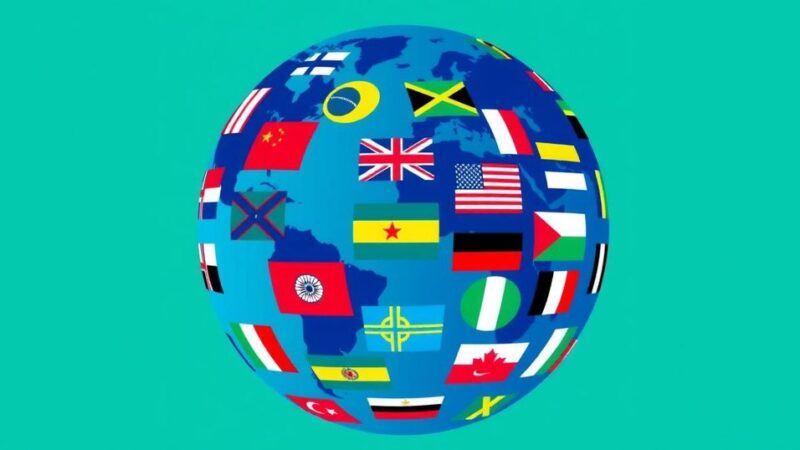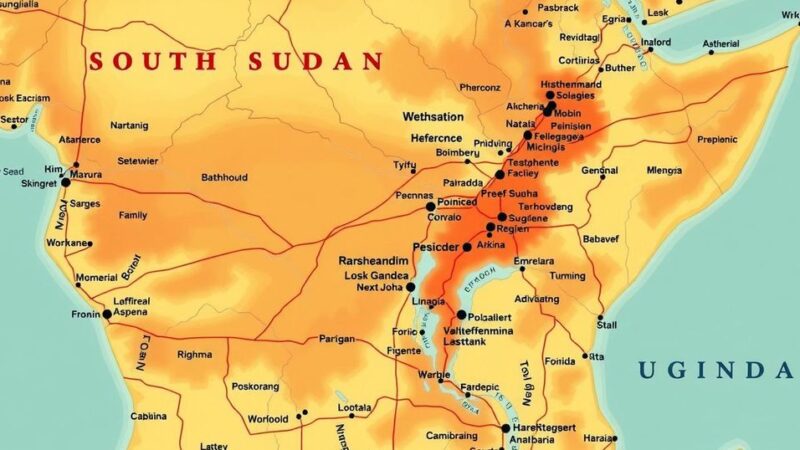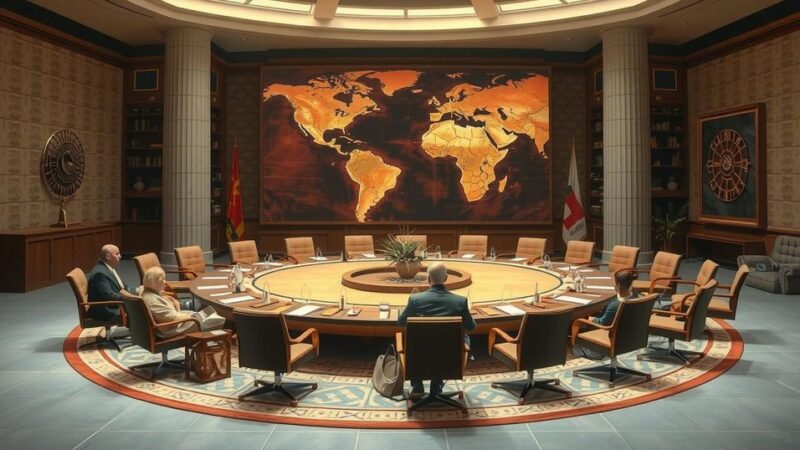The meeting of India, Brazil, and South Africa’s foreign ministers during the UN General Assembly highlighted their commitment to expanding UNSC membership to better represent developing nations. They discussed issues such as global conflicts, the humanitarian crisis in Gaza, and the importance of reinforcing multilateralism and South-South cooperation to address global challenges, including poverty and hunger.
During the 79th Session of the United Nations General Assembly in New York, External Affairs Minister of India, S. Jaishankar, Brazilian Minister of Foreign Affairs, Mauro Vieira, and South African Minister of International Relations and Cooperation, Ronald Lamola, convened to reaffirm their dedication to the expansion of the United Nations Security Council (UNSC). The IBSA ministers emphasized the necessity of inclusivity within the UNSC, advocating for the representation of developing nations from Africa, Asia, and Latin America across both permanent and non-permanent member categories. Minister Jaishankar expressed the productive nature of their discussions, noting via a post on social media, “Attended a productive IBSA Foreign Minister’s meeting today alongside FM Mauro Vieira and FM Ronald Lamola. IBSA nations participate in and shape ongoing global discourses on development, SDGs, poverty eradication, multilateralism, and South-South cooperation. We share convergent views on reforms of UN system and of its Security Council. Our consultations should intensify as these debates acquire greater urgency.” The IBSA Dialogue Forum, established during a meeting in Brasilia in 2003, leads discussions among these three culturally rich nations that share common developmental challenges and aspirations. Following their recent meeting, a joint statement articulated the commitment to enhance the UNSC representation to accurately reflect contemporary global realities, particularly recognizing the valid claims of African nations for permanent seats, as well as the aspirations of Brazil and India. In addition to reforming the UNSC, the ministers addressed current global conflicts, particularly in Ukraine, encouraging a de-escalation of tensions, dialogue, and diplomacy as essential paths towards peace. They also highlighted their profound concern regarding the humanitarian crisis in Gaza, advocating for an immediate ceasefire and compliance with international law regarding UNSC resolutions. Moreover, the ministers discussed their intention to bolster the IBSA Fund as a significant initiative aimed at poverty alleviation and food security, pursuing projects under national ownership across developing countries. They recognized the recent launch of the Global Alliance against Hunger and Poverty as part of the Brazilian G20 presidency initiative. In closing, the ministers acknowledged the urgent need to mitigate escalating geopolitical tensions while reasserting their commitment to multilateralism. They reaffirmed the need for a revitalized approach to global governance to effectively address the challenges of the 21st century, ensuring that governance remains representative, legitimate, and accountable.
The IBSA Dialogue Forum, comprising India, Brazil, and South Africa, was established in 2003 with the aim of fostering discussion and collaboration among developing nations on key global issues such as development, South-South cooperation, and the need for a more representative global governance structure. As emerging economies, the member states share common challenges and interests, particularly in light of their diverse cultural and political landscapes. Their focus has increasingly included calls for reforms in international institutions, notably the United Nations Security Council, to reflect contemporary geopolitical dynamics and the aspirations of developing countries.
In conclusion, the recent meeting of the IBSA ministers significantly underscored their collective determination to reform the United Nations Security Council to effectively incorporate developing nations. The discussions also addressed pressing global issues such as ongoing conflicts and humanitarian crises. Through collaborative efforts, they aim to enhance international cooperation and advocate for the representation of their respective nations in influential global forums, reinforcing the importance of multilateralism in addressing contemporary challenges.
Original Source: thenewsmill.com






